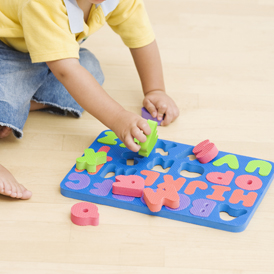Children in care ‘leave too early’
New research reveals nearly half of people who live in care as children say they are made to leave too early and do so without being prepared.

A study which questioned 308 young people who have either left care or were preparing to leave also found that more than a quarter (26 per cent) felt that being in care had made their lives worse, although nearly two-thirds (61 per cent) said that being in care had improved their lives.
The Ofsted report, published by the Children’s Rights director for England Dr Roger Morgan, found 46 per cent said they felt they left before they were ready or were not prepared to leave while nearly half (49 per cent) thought they had been prepared for leaving either badly or very badly.
Although typically young people leave home at around 24, some of those questioned were leaving care when aged as young as 16.
Some spoke of feeling lonely and struggling to cope on their own while many said they wanted help with learning domestic skills and practical issues such as how to budget and manage money, as well as about how to obtain and use important documents such as passports and birth certificates.
As a 16-year-old I have gone from a children’s home to a women’s refuge. Former child in care
One care leaver complained about not being able to get a job due to not having their national insurance number.
Another person quoted in the report said: “As a 16-year-old I have gone from a children’s home to a women’s refuge. I have gone from having lots of support to having none.”
Results on how young people felt about how their education were more evenly split, with 35 per cent saying they felt it had made them do worse as a result of coming into care, 29 per cent saying they thought they had done better and 27 per cent saying they thought it had made no difference to their education.
Read more: Foster care crisis looming
Leaving care in stages?
Dr Morgan said: “Not being prepared to leave care and being made to leave too early were themes that came up again and again in our consultation.
“Young people telling us about their experiences of leaving care have mentioned that loneliness is something that many are struggling to cope with.
“Having spent years living with others in care, many now feel as though they have moved to a life of isolation and limited support.
“It was interesting to hear that one care leaver commented that it might be better to leave care in stages rather than so abruptly.”
The study also found that half of the care leavers questioned said they sometimes, often or always try to keep the fact they were in care a secret, with more than one in five (22 per cent) saying they try to hide it all the time. Only 31 per cent said they were open about it with other people.
Dr Morgan went on: “It is encouraging that 61 per cent of care leavers felt their lives had been made better as a result of being in care.
“It is worrying equally that many felt they were treated so differently by society that they kept the fact they were in care a secret.
“Overall, half of the care leavers told us they sometimes, often or always kept it a secret that they were in care. It is worrying that in this day and age, care leavers feel they have to hide this.”
The young people questioned came from 34 different local authority areas in England and were mainly those who had already left care.
-
Latest news
-
Taylor Swift’s new break-up album breaks records3m

-
NHS trust fined £200K for failings that led to death of two mental health patients3m

-
Sunak vows to end UK ‘sick note culture’ with benefit reform3m

-
‘Loose talk about using nuclear weapons is irresponsible and unacceptable’, says head of UN’s nuclear watchdog3m

-
‘There wasn’t an Israeli attack on Iran,’ says former adviser to Iran’s nuclear negotiations team7m

-




